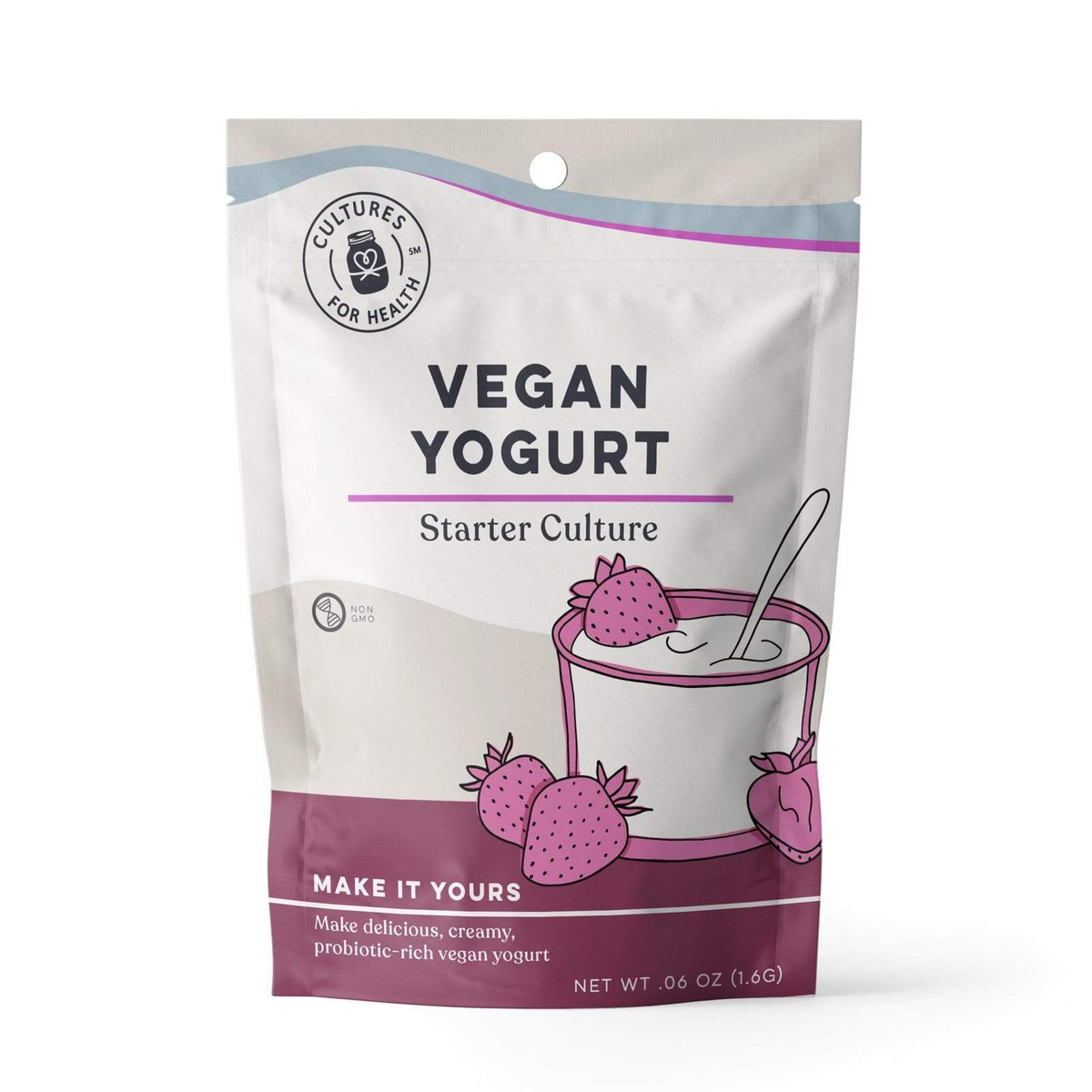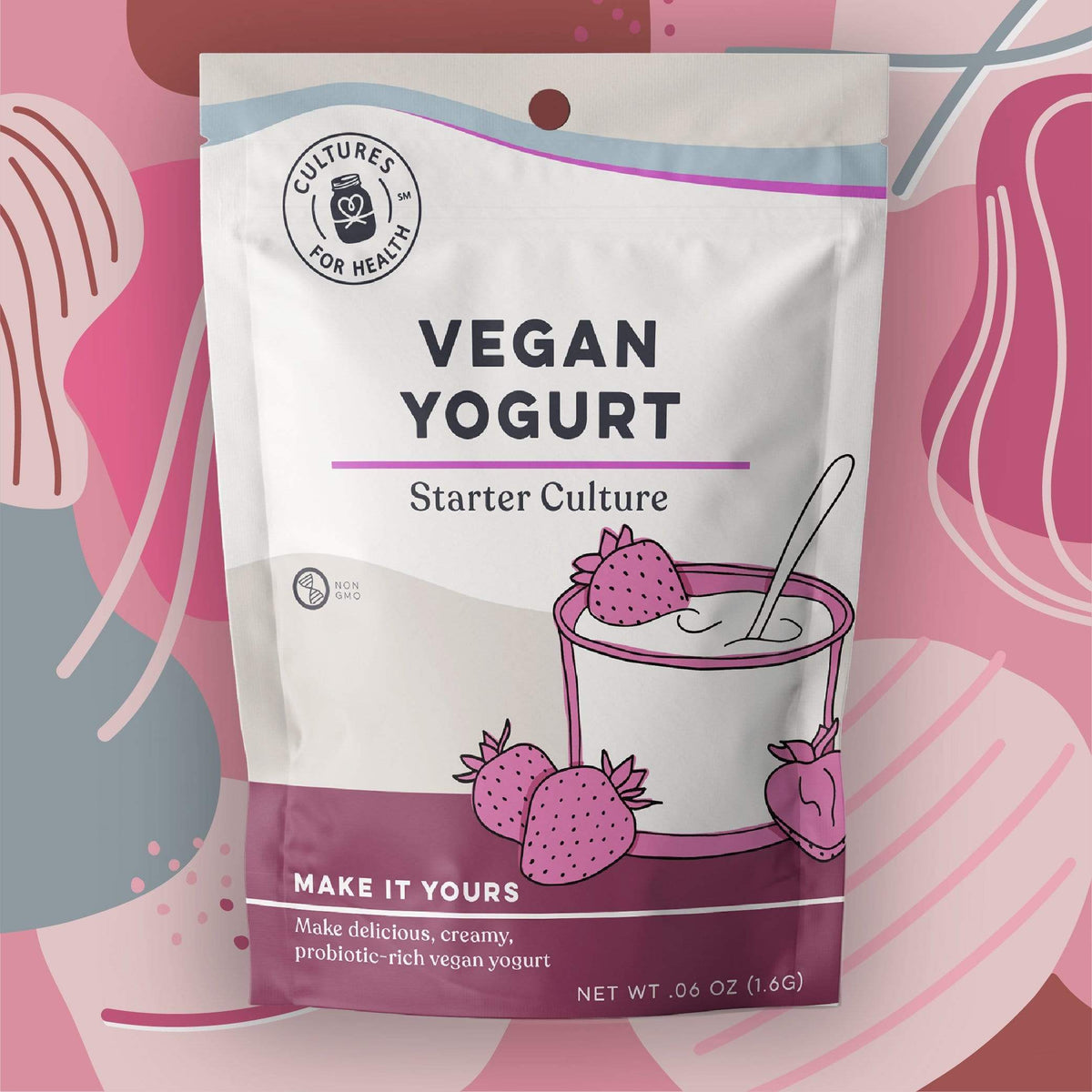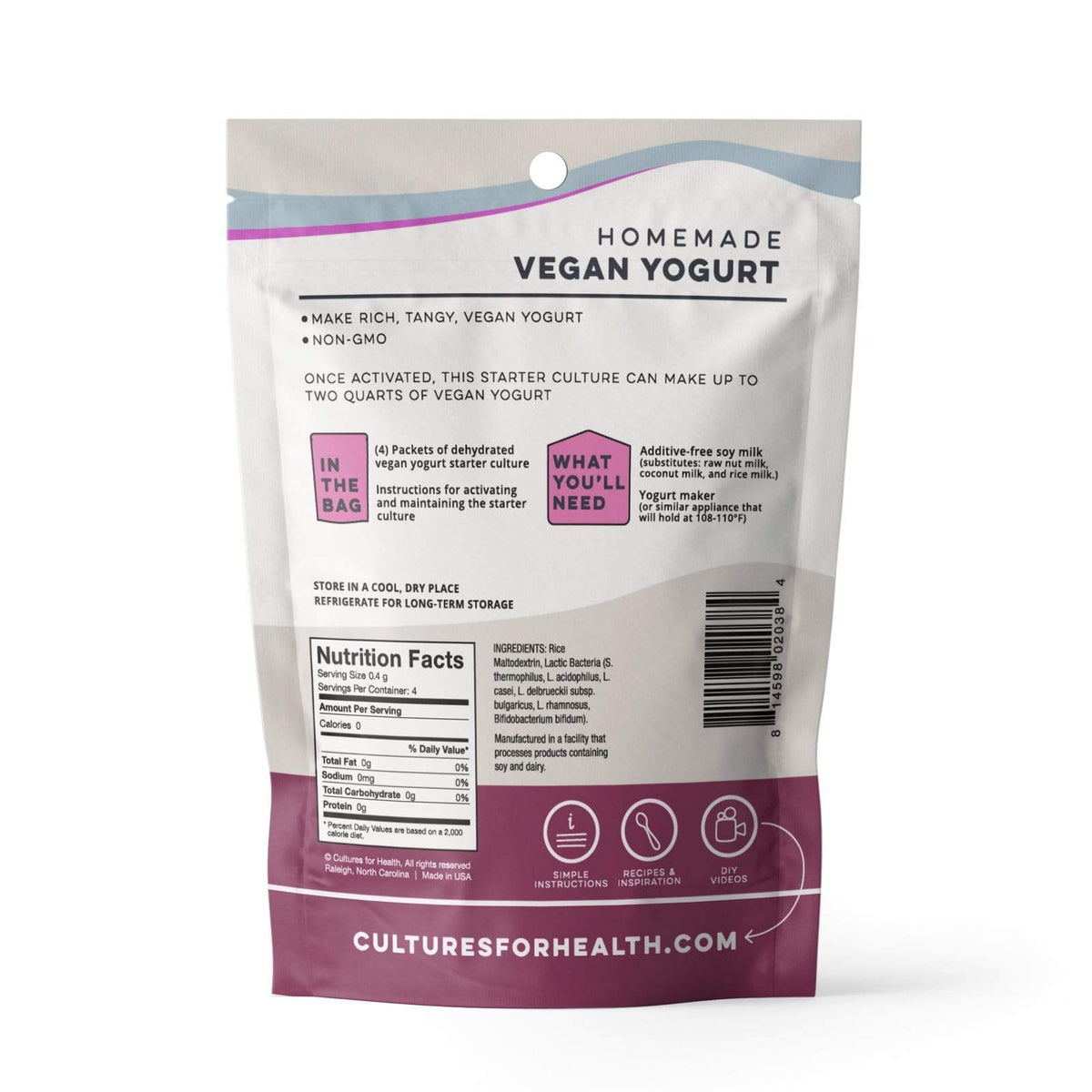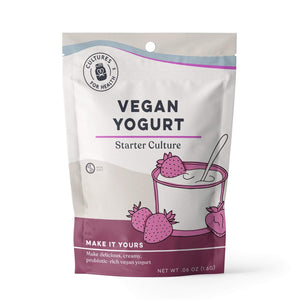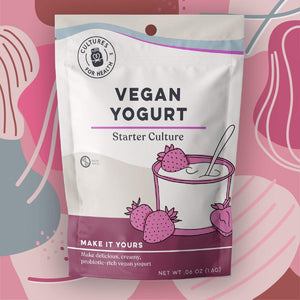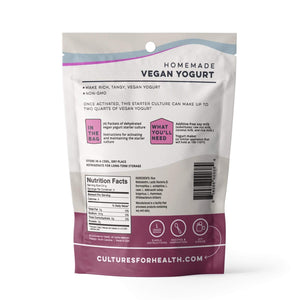
Yogurt is one of the mostpopular dairy products in the United States. It's delicious, easy to eat, and can be used in many different ways. But is yogurt good for you? Does it really deserve all the praise it gets? Let's take a look at the nutritional facts of yogurt, its benefits, and how to choose the healthiest yogurt.
IS YOGURT GOOD FOR YOU? UNCOVERING THE HEALTH BENEFITS OF THIS TASTY TREAT

The question "Is yogurt good for you?" has occupied the minds of the health-conscious for years. While it doesn't possess mystical powers, yogurt is indeed a commendable addition to a wholesome diet.
Yogurt is made from milk that has been fermented withyogurt cultures (Lactobacillus bulgaricus andStreptococcus thermophilus, among many others). When these bacteria combine with milk, they produce lactic acid—which gives yogurt its tangy taste.The longer you allow your yogurt to rest at room temperature before consuming it, the more beneficial bacteria will propagate within reason, of course!
Yogurt, tagged a "functional food," exhibits numerous yogurtbenefits for human health, both directly and indirectly. It's been associated with reduced cholesterol levels, increased bone density, improved dental health (due to its calcium content), and even weight management (due to its probiotic content).
There are so many great things about yogurt that, if you don't already love it, learning all of these facts will ensure you do it in no time.
THE NUTRITIONAL FACTS OF YOGURT: WHY IT'S A POWERHOUSE OF HEALTH BENEFITS

Yogurt is an undisputed powerhouse of valuable nutrition. It's packed with protein, calcium, probiotics, and other vital nutrients. Here are some salient points about why is yogurt healthy:
- Yogurt is rich in protein. One cup of nonfat plain yogurt carries around 14 grams of protein, aiding in prolonged satiety and stabilized blood sugar levels.
- Yogurt is a reliable source of iodine, a vital nutrient for proper thyroid function. The thyroid gland plays a critical role in regulating metabolism, growth, and development. Having iodine-rich foods such as yogurt in your diet can help maintain the health of your thyroid and prevent issues like hypothyroidism or goiter.
- Yogurt is high in calcium. One cup of nonfat plain yogurt holds about 488 milligrams of calcium, essential for strong bones and proper muscle function.
- Yogurt is a probiotic powerhouse. These beneficial live bacteria are good for your gut and can help thwart infections caused by harmful bacteria in your gut or intestines. Bear in mind that some store-bought yogurts may lack live bacteria or contain only a few strains, which is why we always recommend crafting your own yogurt at home.
- Yogurt brims contain B vitamins. A 100g serving of plain yogurt has about 5 milligrams of Vitamin B-6, 0.75 milligrams of Vitamin B-12, 0.278 milligrams of riboflavin, and 0.023 milligrams of thiamine.
- Additionally, yogurt is a great source of Selenium, a trace element that contributes significantly to our antioxidant defenses. It assists in protecting cells and tissues from damage and helps in regulating the immune and thyroid function. Consuming yogurt daily can help you meet the necessary selenium requirements.
- Yogurt is a good source of potassium, phosphorus, magnesium, and zinc. 100 g of plain yogurt has about 141 milligrams of potassium, 135 milligrams of phosphorus, 11 milligrams of magnesium, and 0.52 milligrams of zinc.
Yogurt Nutrition Facts (per 100g):
Nutrients |
Minerals |
||
|
Calories |
97 KCal |
Potassium |
141 mg |
|
Protein |
9.0 g |
Phosphorus |
135 mg |
|
Fat |
5.0 g |
Calcium |
110 mg |
|
Carbohydrate |
3.98 g |
Sodium |
35 mg |
|
Vitamin A |
26 mg |
Magnesium |
11 mg |
|
Choline |
15.1 mg |
Zinc |
0.52 mg |
|
Vitamin B-6 |
5 mg |
||
|
Vitamin B-12 |
0.75 mg |
||
|
Riboflavin |
0.278 mg |
||
|
Thiamine |
0.023 mg |
||
THE SCIENCE BEHIND THE BENEFITS OF YOGURT
Yogurt is delicious and nutritious, but the benefits of its active cultures are only the beginning of what this functional food can do for you. Here are some of the many benefits of eating yogurt:
IMPROVES DIGESTION
Yogurt is a surprisingly effective way to keep your digestive system healthy. Yogurt contains live active cultures that help improve digestion andfight off harmful bacteria in your intestines. These "good" bacteria are known as probiotics, and they're also found in many other fermented foods likemilk kefir orsauerkraut. Thus, eating yogurt regularly can improve your digestion.
BOOSTS THE IMMUNE SYSTEM
Your immune system plays a central role in disease resistance. One way to strengthen your immune system is through probiotics.
Researchers have been studying the effects of yogurt on the immune system for decades and have found that yogurt is one of the best sources of probiotics. Probiotics are living microorganisms that help us maintain a healthy gut flora, which in turn helps our immune system stay in check. There is evidence that yogurt can:
- stimulate cytokine production (chemical messengers important for cell regulation)
- increase phagocytosis (the process by which immune cells engulf and destroy foreign particles)
- enhance antibody production, activate cytotoxic T-cells (which kill cancer cells)
- and improve NK cell activity (specialized white blood cells that attack viruses and tumor cells).
Such effects can even reduce the risk of cancer, gastrointestinal disorders, and allergic symptoms.
ENHANCES GUT HEALTH
Your gut is one of the most important parts of your body. It produces enzymes and contains trillions of good bacteria that help digestion and nutrient absorption; and what we eat can influence how well our intestines work and whether we have a healthy gut microbiome.
Yogurt, for instance, has been found to help with certain gastrointestinal conditions, including constipation, inflammatory bowel disease, and lactose intolerance. In one study, researchers also found that yogurt containing three particular probiotics (L. casei, L. bulgaricus, and S. thermophilus) reduced antibiotic-induced diarrhea in participants. This is good news for anyone who's ever had to take antibiotics!
And that's just the beginning—there's also some evidence that yogurt may help with colon cancer, H. pylori infection, andmore!
One of the important yogurt benefits relates to mental health. Emerging research indicates a strong connection between gut health and the brain, often referred to as the gut-brain axis. Probiotics present in yogurt can have a positive impact on mental health conditions, reducing symptoms of anxiety, depression, and stress. Thus, regular intake of yogurt might not only benefit your gut health but also support your mental well-being.
PROMOTES WEIGHT LOSS

Studiesshow that low-fat yogurt is a key component of weight management programs because it promotes healthy weight loss. In fact, low-fat yogurt has been found to promote greater weight loss than vegetables, fruit, and whole grains.
According to a study that tracked the diets of over 120,000 healthy Americans over a four-year period, eating low-fat yogurt dailycan lead to a weight loss of up to 4 lbs.
HELPS REGULATE BLOOD PRESSURE
According to a study published in the International Dairy Journal, daily consumption of yogurt is a great way to manage blood pressure. The study found that people who ate yogurt on a daily basis had lower blood pressure.
Furthermore, yogurt contains calcium, potassium, magnesium, and phosphorus, which are all important nutrients for managing blood pressure. Yogurt also contains live active cultures that may help reduce the risk of blood pressure-related diseases, such as hypertension and stroke.
MITIGATES INFLAMMATION
Yogurt is a good source of probiotics, which helps reduce inflammation in the body. A study found that people who eat yogurt regularly have lower levels of inflammation.
Inflammation is a normal part of the body's response to an injury or infection. But if it keeps happening, it can lead to chronic health problems, such as heart disease and diabetes.
Researchers found that people who ate more yogurt had lower levels of IL-6 and fibrin—two biomarkers associated with chronic inflammation. This means that eating yogurt daily may help your body fight inflammation.
YOGURT BENEFITS FOR HEART HEALTH, DIABETES, AND MORE: WHAT DOES THE EVIDENCE SAY?

STRENGTHENS BONE HEALTH
Yogurt is a great source of calcium, protein, magnesium, and phosphorus, which are essential nutrients for maintaining healthy bones.
According to a study published in Osteoporosis International, eating yogurt regularly can help you build stronger bones and reduce the risk of osteoporosis.
The study found that people who ate yogurt regularly had a 3% to 4% increase in bone mineral density and a 39% to 52% lower risk of osteoporosis in women and men, respectively, compared with those who didn't eat yogurt.
FIGHTS VAGINAL INFECTIONS
The good bacteria in yogurt can help combat vaginal infections. That's because yogurt contains lactobacillus, a type of bacteria that helps keep the body healthy by preventing infections.
Yogurt can be used as a treatment for vaginitis, which is an inflammation of the vagina. It's caused by an imbalance in the bacterial flora that normally lives in the vagina. This imbalance can cause an overgrowth of yeast or other harmful bacteria. Studies show that drinking yogurt containing live bacteria can help prevent or treat vaginal infections.
AIDS IN DIABETES MANAGEMENT
Yogurt can be a great way to manage diabetes. Many studies have found that yogurt helps regulate blood sugar levels and may even help prevent the onset of type 2 diabetes.
The probiotic bacteria in yogurt can help control blood sugar levels by increasing insulin sensitivity, as well as reducing inflammation and the amount of glucose absorbed into the bloodstream.
REDUCES RISK FOR CARDIOVASCULAR DISEASE
Yogurt can help reduce your risk for cardiovascular disease. Studies have shown that fermented yogurtreduces total and LDL cholesterol by 4% and 5%, respectively.
A study of overweight adults revealed an 8.4% decrease in LDL cholesterol after eating yogurt. The study also found that people who consume more low-fat dairy products have a lower risk of heart disease and healthier lipid profiles.
CHOOSING THE HEALTHIEST YOGURT: WHAT SHOULD YOU KNOW?
When it comes to yogurt, you have a lot of different options. But if you're looking for a healthy choice, here are some things to keep in mind:
- Read the ingredients list carefully! You want to make sure there aren't any unnecessary additives like high fructose corn syrup or artificial sweeteners hiding in there.
- Look for "Live and Active Cultures" on the label. Yogurt with live cultures is associated with better digestion and immunity, so it's worth paying attention to when you're shopping.
- If possible, choose a low-fat or non-fat variety of yogurt with no added sugar.
- Choose plain varieties over flavored ones whenever possible, because flavored yogurts usually have more added sugar than plain varieties.
EXPERIENCE THE JOY OF MAKING YOUR OWN YOGURT:
If you want a tasty and healthy treat, consider making your own yogurt at home. It's easy, cheap, and fun! Plus, it tastes better than store-bought versions because you can control what goes into it. Homemade yogurt is also usually more nutritious than commercial brands.
To make yogurt at home, you just need a few simpleyogurt supplies, milk of your choice, and a yogurt starter. Once you learn how to make it yourself, you can also control its fat and sugar content, which is excellent for people watching their weight.
Vegan Yogurt Starter Culture
Note: If you don't like the taste of plain yogurt, check out our article on How To Make Plain Yogurt Taste Good.
THE BOTTOM LINE FOR THE QUESTION, “IS YOGURT GOOD FOR YOU?”
Yogurt is healthy and good for your diet. It's a low-fat, high-protein food that has many health benefits. But, if you're going to eat yogurt, be sure to avoid all the added thickeners and sweeteners.
In summary, answering the question, "Is yogurt good for you?" Yes, indeed! Yogurt is healthy and a beneficial addition to your diet. It's a low-fat, high-protein food that offers numerous health benefits. But when consuming yogurt, steer clear of added thickeners and sweeteners.
Many commercial brands might be loaded with sugar or other potentially harmful additives. Creating your own yogurt at home is the best way to harness all the benefits this remarkable food provides.














